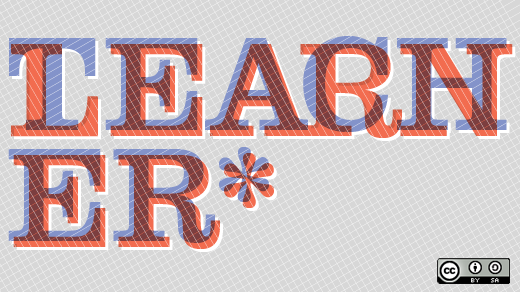Reading The Open Organization was exciting because author Jim Whitehurst catalyzed many ideas that I've had swimming in my consciousness. Jim says that his role at Red Hat is more of a catalyst than a CEO in the traditional sense of how we use the word. The open organization is less about CEOs and more about community building and empowerment. His approach reminds me of ancient wisdom found in the Tao te Ching:
The master works without self interest
and leaves no trace.
When the work is done,
the people say: "Amazing:
we did it, all by ourselves."
That's the open source way. Community building is key to an effective open organization and points the way to a new paradigm of leadership for everyone.
I recently listened to a talk that Jim gave at TEDx Raleigh in 2012. In that talk, he said that rote tasks were an invitation to automation because they could easily be performed by a robot. I thought again of my own experience with education. What implications are there for education?
It's easy to see how many administrative functions in an open organization could easily be performed by a robot. Payroll, attendance, supervision, and testing seem like relatively easy places to start. Teaching, on the other hand, is a far more complex operation that requires the ability to monitor the education of a room full of children each with different needs and learning modalities. A teacher needs to differentiate instruction for each of their students. It seems, then, that instruction is not easy to automate. The role of the teacher will change with the tools and technology that are available, but teachers won't be replaced by a machine any time soon.
Teacher evaluation has become a hot topic in education circles these days. How might that change in an open organization? How might classroom organization change in such an environment? Teachers typically bring passion and engagement to their classrooms. That's why most of them enter the classroom in the first place: because they are idealists who believe they can make a difference in children's lives.
In a meritocratic organization, we will value and evaluate based on the passion and engagement of the teacher. The ancient African philosophy of Ubuntu, "I am what I am because of who we all are," is key in an open organization. An open organization points the way forward because it intrinsically celebrates diversity. The celebration of that diversity is the key to our future as we become an increasingly global society.
The open organization encourages divergent thinking. Divergent thinking means that there is no one right answer. Instead, the collision of ideas is celebrated as teachers and students explore new concepts and participate in a society and world that lives on new ideas and new solutions to new problems. The current test-centered agenda in most of our schools doesn't celebrate diversity and accepts that there is only one answer or set of answers that are acceptable.
Children are not being prepared for the present or future in such an environment. We need catalysts like Jim speaks of in education. We need to invite more to that process. An open educational organization invites teachers and learners to be a part of that process. An open organization builds leadership and character. Isn't that what we want in an educational system?
Follow the conversation on Twitter #theopenorg
School
This article is part of the Back to School series focused on open source projects and tools for students of all levels.






2 Comments